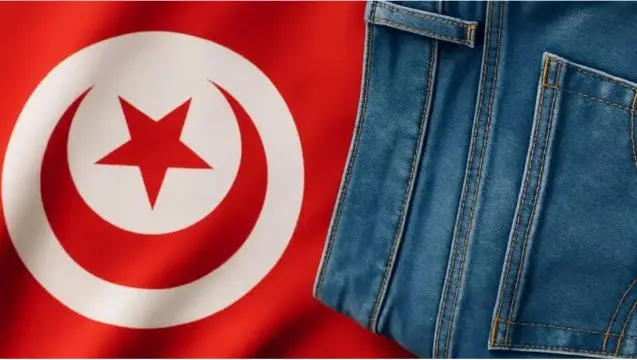
Resilient and Rising: Tunisia’s Textile Industry Thrives Amid Global Turbulence
The sector comprises approximately 1,880 companies, with a striking 90% dedicated exclusively to exports. Foreign investment plays a significant role in this ecosystem—45% of these firms operate as joint ventures with international partners. As a cornerstone of the Tunisian economy, the textile and clothing industry accounts for around 20% of national exports and provides employment for about 176,000 workers, representing over 30% of the country’s manufacturing labor force.
In a recent statement on Mosaïque FM, Haythem Bouajila, President of the Tunisian Federation of Textile and Clothing, revealed that the industry’s exports have surpassed six billion Tunisian dinars. This performance, he noted, remains consistent with previous years, where annual exports ranged from 9 to 9.6 billion dinars, despite adverse global conditions and the rising competitiveness of regional players like Egypt, which is investing heavily in the denim and jeans market.
Bouajila emphasized that Tunisian textile products are moving upmarket, focusing on quality and innovation. This strategic pivot towards higher-end offerings has helped domestic producers withstand price-based competition from other countries where prices are falling but margins are shrinking.
Official trade statistics underscore this progress. Between 2019 and 2023, Tunisia’s textile exports to the EU rose significantly—from €1.966 billion in 2019 to €2.280 billion in 2022, and €2.358 billion in 2023—even as the EU’s overall textile imports fell by 16.22%.
In 2023 alone:
- Clothing exports grew by 6.8%, totaling TND 8.18 billion
- Textile exports increased by 3.07%
- The total sector exports rose by 5.61%, reaching nearly TND 9.7 billion
- The sectoral trade balance improved by 12.5 percentage points
Tunisia now ranks as the 10th largest supplier of clothing to the EU, ahead of major global producers such as the United Kingdom, Sri Lanka, and Egypt. This is a significant achievement, positioning the country as a key player in the European fashion and apparel supply chain.
However, the sector faces persistent structural challenges. Skilled labor shortages, logistical inefficiencies, rampant smuggling, and the expanding parallel market continue to place pressure on domestic manufacturers.
To further solidify its international competitiveness, Tunisia has launched an ambitious sustainability roadmap. By 2030, the country aims to:
- Recycle 90% of wastewater used in textile production
- Reduce the sector’s carbon footprint by 30%
These eco-friendly initiatives not only align with global sustainability trends but also enhance Tunisia’s appeal to environmentally conscious European partners and brands.
With continued government backing, increased private-sector mobilization, and a strategic focus on quality and sustainability, Tunisia’s textile industry is not just surviving global upheaval—it is poised to lead in the next era of ethical and competitive textile manufacturing.


